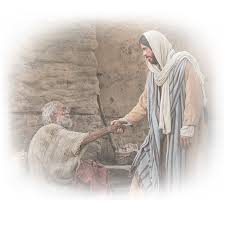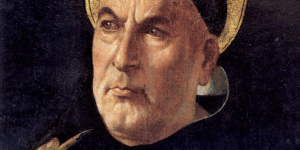By Student Preacher Julia Overmyer ’23 (River Forest, IL)
Good Morning! We are gathered here this morning to celebrate the Feast of the Immaculate Conception. If I were to ask everyone in this auditorium what they thought the Immaculate Conception was, there would be at least one person, if not more, that would say it is the celebration of the miracle birth of Jesus. Up until a while ago, I would have said the same thing. All I knew was that Mr. Mulcahey said that Catholics believed in it, but the Protestants did not. However, this feast day celebrates something different, someone different. Today we honor Mary. The woman who not only brought God into this world, but who very importantly was chosen by God to be born without sin.

My Mom has a phrase that she likes to tell both my sister and me. She says, “You are going to end up where you are meant to be, because God chose this path for you.” When I tell you I have heard this phrase applied to pretty much everything, I mean it. From the little things like my placement in a certain class, to the bigger things like what my life will be like in the future, my Mom would repeat it to me. The amount of times I heard this expression during the college application process was probably an all-time record. I can’t seem to escape it.
Yet, no matter how many times my Mom says this phrase to me, I consistently find it hard to understand. If God chose me to do something, if He has a plan for me, then why do I even bother trying to live out the life that seems to be predetermined for me? As much as I don’t like to admit, my dislike for this phrase comes from my fear of the unknown. Being afraid of what we don’t know is a natural instinct. Not knowing what lies ahead, whether being something unfamiliar or possibly dangerous, can ignite unease within us. However, we shouldn’t let this fear prevent us from pursuing our goals.

In today’s Gospel of Luke, we hear of the angel Gabriel coming to Mary to tell her she will bear a son. Luke writes, “And coming to her, he said, ‘Hail, full of grace! The Lord is with you.’ But she was greatly troubled at what was said and pondered what sort of greeting this might be.”
What strikes me as interesting in this passage is Mary’s response to the angel Gabriel. The Gospel says that Gabriel appearing in her room was not the thing that scared her, but it was what he had spoken to her. She questioned Gabriel’s greeting, “Hail, full of grace.” To us, we don’t see how this could be a fearful phrase, for we often repeat it when reciting the Hail Mary. However, to a 15-year-old Mary, being hailed and filled with God’s gift of grace by an angel in the middle of the night, was pretty terrifying. Yet she chose to place her faith in God’s plan over her fear of the unknown.
God chose her, even before she was born, to receive this message and fulfill this revelation. God brought Mary into this world without the pains of original sin so she could have Jesus. And although she did not know what was to come, Mary overcame her fear with faith.
Like Mary, we are all chosen by God to lead a certain life. The gifts that God has given us — being His grace and free will — aid us to follow our path of life. Even Mary, the mother of Jesus, was worried about God’s plan for her. Yet her undeniable faith in God not only allowed for her to accept His plan, but gave her a sense of peace. We should all strive to be like Mary; accepting God’s chosen plan for us, and conquering our fears. So I ask you to remember today and all days that we are each chosen by God to follow a certain purpose in our lives. Whether grand or small, for many or for one, God has chosen every single one of us to be what this world needs.


















 Brother John Steilberg joined Fenwick’s
Brother John Steilberg joined Fenwick’s 